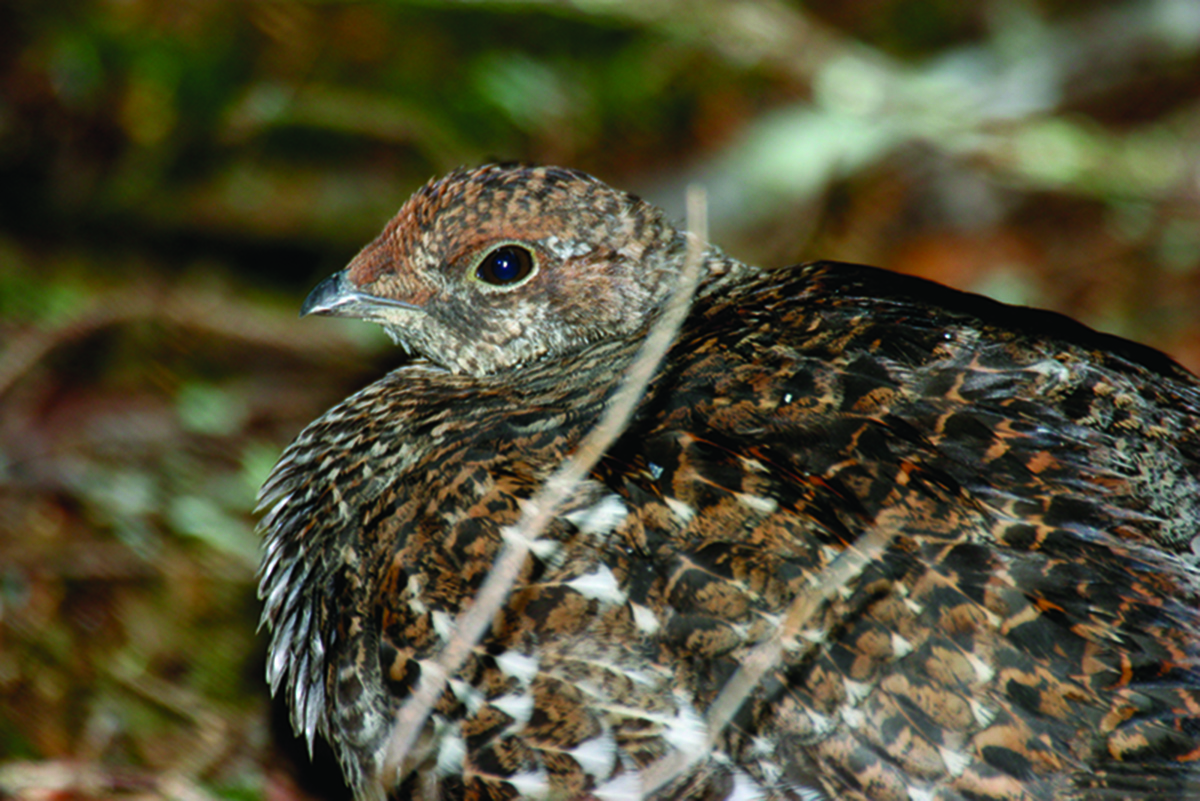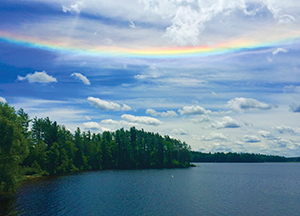
State Plans Road Through Wild, Rare, Sensitive Tract
NEWS RELEASE
For more information:
John F. Sheehan
518-432-1770 (ofc)
518-441-1340 (cell)
FOR IMMEDIATE RELEASE: Tuesday, October 17, 2017
POTSDAM, N.Y. – The Adirondack Council is calling on the NYS Dept. of Environmental Conservation to withdraw its proposal to construct a new road through a wild and remote Adirondack Park landscape, where the road could prevent the creation of a planned wilderness area, bisect an old-growth forest and degrade the habitat of at least two endangered species – the spruce grouse and a rare dragonfly.
 Spruce Grouse Photo by Larry Master
Spruce Grouse Photo by Larry Master
This new road in the Adirondacks “raises very alarming ecological and legal concerns,” said Raul (Rocci) Aguirre, Director of Conservation for the Adirondack Council, in a letter to DEC’s Conservation Easement office in Potsdam.
TAKE ACTION NOW - Click HERE for the Adirondack Council's Action Alert.
He reminded the DEC that its own plan for managing the Adirondack Park says: “Ecological resources found here are considered to be critical on both a regional and global scale.”
“The Adirondack Council opposes construction of the 1.25-mile connector road and the subsequent opening up of approximately 17.5 miles of roads” nearby, Aguirre explained. “We request that a more comprehensive, detailed, and science-based second draft be completed that prioritizes natural resource and ecological protections.”
The DEC’s plans were contained in a Draft Amendment to the Five Mile Interim Recreation Management Plan and Conservation Easement Portion of the Raquette Boreal Complex Unit Management Plan.
The proposed roads would cross 12,000 acres of forests, streams, wetlands and commercial timberlands where the state owns the recreational rights, through a conservation easement. The easement lands are located in southeastern St. Lawrence County, adjacent to public Forest Preserve in the Raquette-Jordan Boreal Primitive Area.
The state will accept public comments on the plan through November 10.
The Council’s call to withdraw the proposal comes just a week after it released its 2017-18 State of the Park Report, which called the status of the park “threatened” in part due to the state’s emphasis on intensive, mechanized recreation in sensitive locations.
“Plans like this threaten the Governor’s successful efforts to protect wild landscapes and promote strong communities in the Adirondack Park,” said Adirondack Council Executive Director William C. Janeway. “It will take both for the park to succeed in the future.”
The DEC says hunters want the proposed road. Aguirre pointed out that there are 19.6 million stakeholders in the future of those lands, not just local hunters.
Since the 1990s, the state has had plans to create a Raquette-Jordan Boreal Wilderness Area by buying lands around the existing Raquette-Jordan Boreal Primitive Area and closing any roads on them to protect the forest, water and wildlife from harm. Roads are not allowed in wilderness areas. Building a new road could prevent the creation of a new wilderness.
Aguirre wrote that DEC’s own Adirondack Park State Land Master Plan warns against intensive use of this tract: “ecological resources found here are considered to be critical on both a regional and global scale. These include one of the largest representative samples of the lowland boreal forest under protection in the Adirondack Park, old-growth forest, and rare animal species such as the spruce grouse and extra-striped snaketail dragonfly.”
“As one of the most significant boreal ecosystems in the state, any move by DEC to increase motorized use only puts at risk the sensitive environments and wild character that make this region so unique,” he wrote.
He also expressed concern regarding the lack of supporting information within the draft amendment, such as: updated and detailed maps, updated or completed natural resource inventories, current easement documentation that includes all relevant restrictions and permissions, impact analysis on all-terrain vehicle (ATV) trespass on neighboring private lands and enforcement procedures.
Aguirre noted that the DEC provided no estimates of projected public use or the landscape’s carrying capacity for intensive recreation, making it impossible for anyone to make a realistic assessment of the potential for damage.
His letter to the DEC outlined 11 separate areas of concern where the plan falls short of expectations for state environmental review.
The Adirondack Council is a privately funded not-for-profit organization whose mission is to ensure the ecological integrity and wild character of the Adirondack Park. The Council envisions a Park comprised of core wilderness areas, surrounded by farms and working forests, as well as vibrant, local communities.
The Council carries out its mission through research, education, advocacy and legal action. Adirondack Council members live in all 50 United States.




